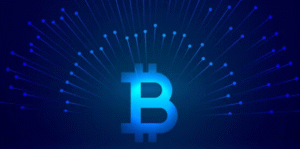$BTC $ETH
#BlockchainTechnology #FootballTransfers #CryptoNews #FinancialInnovation #GlobalSports #TechInSports #DigitalTransformation #SmartContracts #Decentralization #Fintech
How Will Blockchain Fix Football’s Flawed Transfer System? Discover the Revolutionary Benefits!
In today’s fast-evolving sports landscape, the integration of technology is not just a trend but a necessity. The football transfer system, a critical aspect of the sport’s infrastructure, faces numerous challenges, including inefficiency and opacity. Enter blockchain technology, heralding a new era of transparency and speed in transactions. This breakthrough could potentially reshape how clubs and players negotiate and finalize transfers.
The Current Challenges in Football Transfers
Traditionally, football transfers are bogged down by cumbersome bureaucratic processes, lack of transparency, and slow cross-border payment methods. These barriers not only delay the proceedings but often result in significant financial discrepancies due to fluctuating exchange rates and third-party fees.
Blockchain to the Rescue
Blockchain technology offers a robust solution to these endemic problems. By leveraging decentralized ledgers, all parties in a transfer can access the same information in real-time. This transparency eliminates disputes over contract terms and transfer fees, as every transaction and contractual obligation is recorded immutably on the blockchain.
Moreover, blockchain facilitates quicker settlements. With cryptocurrencies and digital tokens, payments can be completed almost instantaneously, regardless of the geographical locations of the clubs involved. This aspect is particularly beneficial in international transfers, which constitute a large portion of the market.
Smart Contracts: Automating Trust
One of the most revolutionary applications of blockchain in football transfers is the use of smart contracts. These digital contracts automatically execute transactions when predefined conditions are met, without the need for manual intervention. This feature ensures compliance from all parties and significantly reduces the potential for conflicts.
Furthermore, smart contracts can be designed to include clauses that protect the interests of all involved parties, such as sell-on percentages, bonus payments, and other conditional stipulations that are common in football contracts.
Global Access and Inclusion
Blockchain technology democratizes access to the football transfer market. Smaller clubs with limited resources can compete more effectively by utilizing blockchain to streamline their operations and reduce transaction costs. Additionally, blockchain opens up new revenue streams by enabling clubs to tokenize assets, including player contracts and future earnings, thus attracting global investments.
The Path Forward
As we look to the future, the adoption of blockchain in football transfers seems not only beneficial but inevitable. For a detailed exploration of how blockchain is revolutionizing other sectors, consider reading about cryptocurrencies and blockchain applications.
Moreover, for those interested in engaging with blockchain technology and cryptocurrencies more actively, visiting platforms like Binance can provide valuable resources and opportunities.
In conclusion, blockchain technology promises to enhance the integrity, efficiency, and inclusivity of football transfers. By addressing the current system’s flaws, blockchain paves the way for a more dynamic and equitable sports industry. The ball is now in the court of clubs, leagues, and governing bodies to embrace this technology and drive the sport into a new era of digital excellence.











Comments are closed.